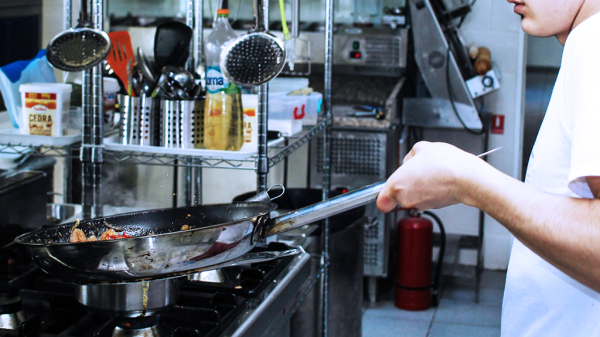I work all day at the factory
I’m building a machine that’s not for me
There must be a reason that I can’t see
You’ve got to humanize yourself
-The Police, Rehumanize yourself
To say we are dominated by technology is to say we have surrendered to it. The promise of the technology revolution (still ongoing) was a life of better spent time and higher productivity.
We slam through the day, multitasking and hey-got-a-minute-ing across platforms and streaming calls, checking our calendars for the next breather. It’s easy to see this as the enemy, but what if the very technology that seems to have stolen our humanity could also offer us a second chance?
Language Models (LLMs) rumbled for a few years with modest success and then exploded at the end of 2022 when ChatGPT burst out of the cake in nothing but a sash. We were transfixed on the perceived intelligence of this bot. The promise, the hype, and the real future are neither fulfilled or certain – but one thing is for sure, they aren’t going away and that affords us a chance to do something we missed with the microchip.
This is our chance to get some of that promise of better lives and higher productivity. We missed it with the web to an extraordinary degree. The possibility of turning toward a thoughtful model of work and learning inadvertently paved the way for the hustle culture and volume over value. It’s like we missed asking for a 36 hour work week in The Fair Labor Law of 1940. (Snaps finger and whispers ‘dammit!’)
The Time Constraint Dilemma
Our obsession with productivity has led us down a path of anxious-making over iteration and multi-streamed thinking and doing. We are always running out of time, desperate for more and more squeezed into our days.
It ultimately dilutes the time and work into marginal satisfaction and outputs when we try to do so many things at once. We can’t satisfy the thirst for getting things started and that comes at the cost of getting things done. 100% of your time doing ten things is ten things done at 10% efficacy. We accepted that the technology allowed us to do more at a faster clip, but not with better results.
More has proven not to be more. It is just excess.
What if we could break free from this relentlessness? LLMs do provide us with the opportunity to automate routine tasks, to delegate the mundane, and to liberate our precious time. They are not here to take our place, they are here to help us find our place. To bypass frozen ideas.
The liberation of cognitive bandwidth shouldn’t be overlooked. Start and continue are the hardest things we do, and if we don’t start, continuing isn’t even an option. Everything is constant information immersion now. Our cognitive bandwidth is diluted by too many choices. Mundane tasks drain our mental energy, leaving us with little capacity for creativity and nuance.
LLMs offer a reprieve, lifting the burden from our overtaxed minds. By taking care of the monotonous, LLMs return to us the mental space to explore more ideas, to delve into the depths of imagination, and to truly embrace the essence of creativity. It’s WordPress for words.
The potential for collaborative partnerships are where lies the promise of beating the hustle pit we fell into with the first technology boom. LLMs are not solitary nodes; they are collaborative companions. Without input, they do nothing. They provide us with the opportunity to bypass our nature of over iteration on iteration one.
Embracing Personal Growth and Exploration
Beyond the realm of productivity lies personal growth and exploration. LLMs open doors to new horizons, where we can immerse ourselves in our passions and interests.
We are no longer confined to the constraints of time and mundane tasks. Whether it’s learning a new language, writing a novel, or mastering a musical instrument, LLMs become our allies. They empower us to pursue our dreams and unlock our true potential which was originally promised to us by innovations of decades past, yet stifled by more mountains of self-imposed productivity tasks.
As for the communal implications of augmented humans and our creations, I don’t think any of us would wind back the clock to no medicine, no corrective lenses and no water purification. The rest is new ethics territory around worker displacement, machine bias learned from bad actors in the corpus building and the inevitable unintended consequences that always make up the bulk of frictions from well-intended human imposition.
A lot is made of the perfectionist genome and the unending pursuit of flawless craft – but what I learned from greater talents and wise mentors was that knowing when to stop was as important as boundless hours chasing greatness. I am a design leader with 20 years of experience across digital mediums and I want to lead, nurture and succeed by helping a team know when to stop.










































